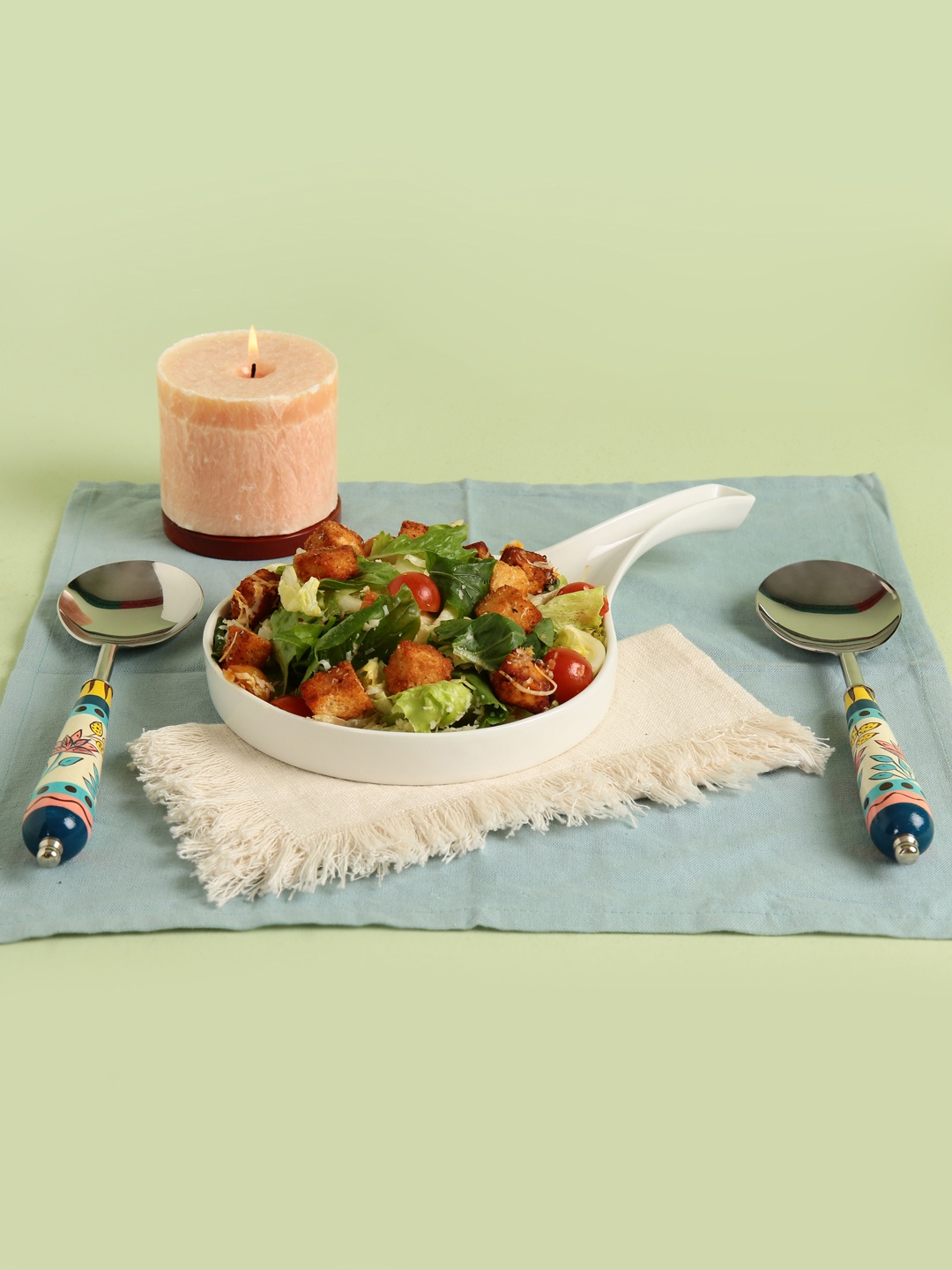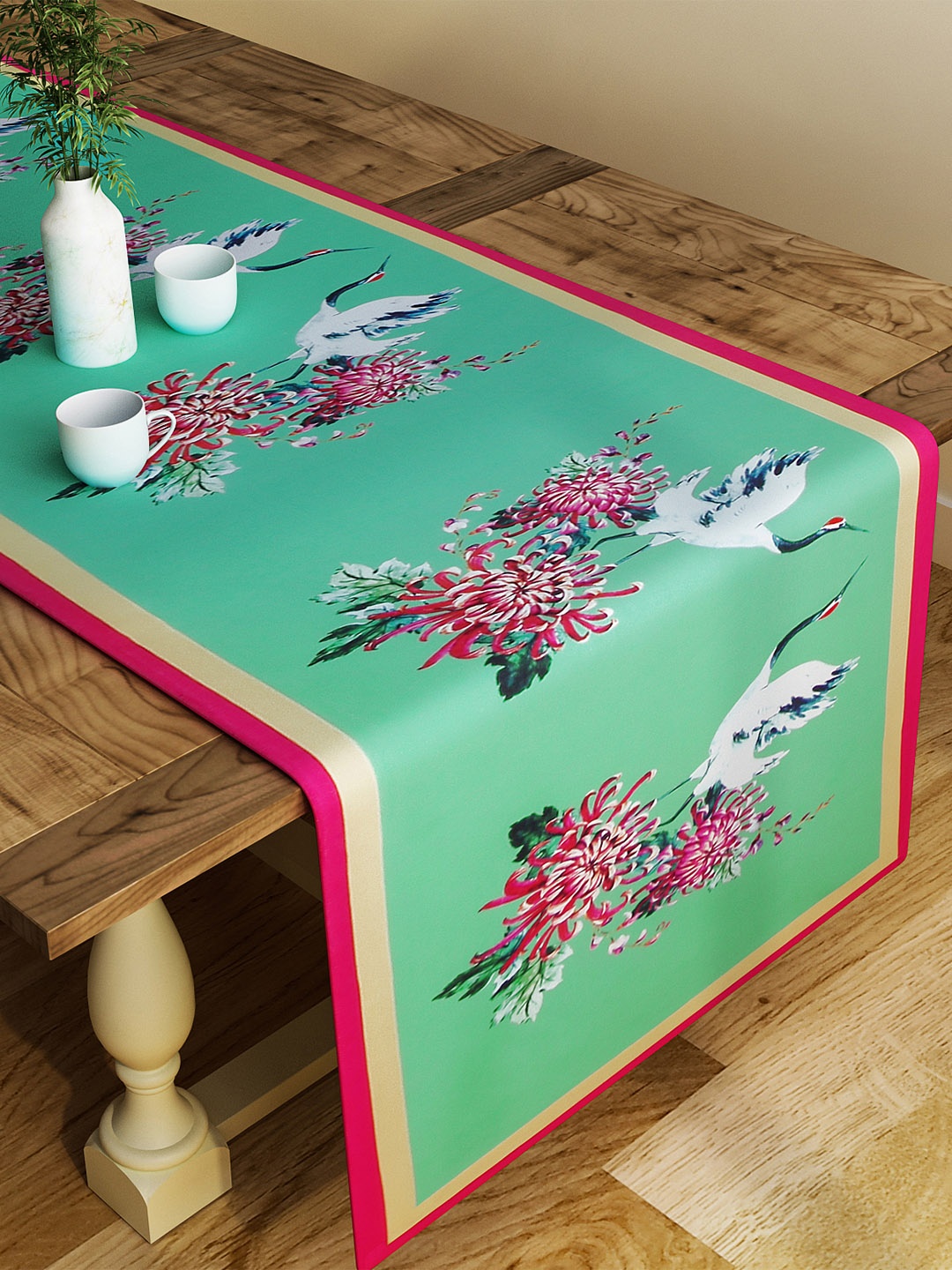How to Clean Silverware Naturally: Easy Home Remedies That Work Fast
Silverware often holds stories, wedding gifts, family heirlooms, festive cutlery or treasured décor pieces. Yet, over time, they lose their shine and gather a dull layer. However, household ingredients can revive the shine of silver with ease. Keep your silver cutlery shining and spotless with these easy cleaning tips.

How To Clean Silverware Naturally Without Chemical Polish.
Silver has a charm that never fades, even if its shine does. Whether it's a beloved pooja thali, a chain gifted decades ago, or spoons that come out only during special meals, silver adds a quiet elegance to everyday life. But the moment tarnish appears, the sparkle dulls, and there's a small sting of worry. Is it ruined? Will it need costly polishing?
The good news is that silver responds beautifully to simple, natural care. Kitchen staples like baking soda, tamarind, lemon and even banana peel hold enough gentle power to lift away oxidation without damaging the metal. These methods feel familiar, comforting even, and they cost little more than the ingredients already lying in the pantry.
Keeping silver bright isn't complicated. It only needs a little patience, the right natural agents and a touch of warmth, much like many good things in life. So, check out how to clean silverware naturally with these easy home remedies that work quickly.

Explore the best ways to clean silver cutlery at home
Photo Credit: Pexels
Natural Ways To Restore Silver's Shine At Home
1. Lemon and Salt Scrub for Quick Shine
Lemon carries a fresh scent and a natural acidity that helps dissolve tarnish without harming silver. A simple mix of lemon juice and a pinch of salt forms a gentle scrub that lifts oxidation layer by layer. Start by slicing a lemon in half and sprinkling salt on the exposed surface. Rub this salted lemon directly on the silver piece in small circles. The acidity breaks down the dull coating, while the salt adds a mild abrasive touch to reach stubborn spots.
This method works especially well for cutlery, small idols, rings and chains used frequently. After rubbing for a minute or two, rinse the silver under warm water and wipe it with a soft cotton cloth. The shine returns almost instantly, leaving behind a citrusy freshness. Many homes prefer this approach because lemons remain easy to find and affordable, usually costing just a few rupees. It's a familiar, fuss-free technique, perfect for moments when silver needs a quick lift before a festive gathering or a surprise guest visit.
2. Baking Soda and Hot Water Dip
Baking soda works like magic when paired with hot water and aluminium foil. The combination triggers a mild chemical reaction that dissolves built-up tarnish without scrubbing. Line a steel or glass bowl with aluminium foil, shiny side up. Add two tablespoons of baking soda and pour hot water over it. Place the silver pieces into this mixture so they rest against the foil.
Within minutes, the tarnish begins to transfer from the silver to the foil. Watching the dullness fade feels surprisingly satisfying, almost like watching a stain disappear during washing. This method suits jewellery, spoons, bowls, and intricate silver items that have tiny grooves where dirt hides. Once the water cools, lift the silver out, rinse thoroughly and dry with a soft cloth.
The entire cleaning costs barely ₹10–₹15 worth of ingredients, making it one of the most economical options. It's ideal for silver that needs deeper cleaning but doesn't respond well to rubbing or harsh scrubbing.
3. Tamarind Paste for Deep Cleaning
Tamarind isn't just a star in countless dishes; it also cleans silver beautifully. Its natural sourness helps dissolve stubborn tarnish and restore brightness. To use it, soak a small ball of tamarind in warm water until it softens. Mash it into a thick paste and apply it onto the silver item. Massage gently using your fingers or a soft cloth.
The paste works well on heavy tarnish, especially on items kept inside almirahs for long periods. Many households already rely on this method during festival preparations. The fragrance of tamarind also makes the process feel homely and familiar. After a few minutes of gentle rubbing, wash everything under running water until the stickiness disappears.
This method costs very little, often under ₹5 worth of tamarind, yet produces striking results. It revives dull silver bowls, lamps, trays and decorative items that rarely get cleaned. The shine that emerges feels almost nostalgic, reminiscent of the traditional cleaning routines followed by earlier generations.

Use tamarind paste to dissolve stubborn tarnish and restore brightness; Photo Credit: Pexels
4. Toothpaste Trick for Everyday Polishing
A small dab of plain white toothpaste can go a long way when silver starts looking lifeless. Toothpaste contains gentle cleansing agents that remove surface tarnish without scratching. To try this method, squeeze a pea-sized amount onto a soft cloth and rub it over the silver surface in circular motions. Focus on areas that appear extra dull or stained.
After a few minutes, rinse thoroughly with water to remove any residue and polish the item with a cotton cloth. The shine returns smoothly, making it a handy quick-fix option. Avoid gel-based or whitening variants because they contain ingredients that may be too strong for silver.
This technique works well for silver chains, earrings, pooja items and small decorative pieces. It requires almost no preparation, which makes it perfect for busy days. Since toothpaste sits in nearly every bathroom cabinet, this method comes with zero additional cost. It's a practical and trusted solution that many homes have quietly depended on for decades.
5. Rice Water Rinse for Gentle Restoration
The starchy water left after washing rice often ends up down the drain, though it holds surprising cleaning power. Rice water removes mild tarnish and dirt from silver without any abrasiveness. Fill a bowl with the leftover water after rinsing rice. Dip the silver items in and let them soak for half an hour. The starch gradually loosens grime while gently brightening the surface.
This technique suits delicate silver pieces, especially jewellery or intricately carved items. It's mild, natural and entirely safe. After soaking, scrub lightly with a soft brush and rinse with clean water. Dry thoroughly to avoid spotting.
Families that cook rice daily find this method wonderfully convenient. It uses something that costs nothing and would otherwise be thrown away, making the cleaning feel both economical and eco-friendly. The silver emerges cleaner and brighter, all thanks to something generated during routine cooking.
Also Read: How To Pick The Best Dishwasher-Safe Cutlery Sets That Stay Spot-Free After Every Wash
6. Vinegar and Baking Soda Combo for Stubborn Tarnish
When silver turns exceptionally dark, a stronger natural solution helps. Mixing vinegar and baking soda creates a fizzy reaction that lifts even older layers of tarnish. To use this, place the silver in a bowl and sprinkle a spoonful of baking soda over it. Pour vinegar slowly until it starts bubbling. Leave the mixture for about 20 minutes.
During this time, the fizz loosens the discolouration. Once finished, rinse thoroughly with warm water and dry immediately. The transformation feels almost dramatic, especially for antique pieces or those stored for years. Though vinegar has a strong smell, the scent fades quickly after rinsing.
This method works on bowls, chains, idols and gifts that have lost their original shine. Ingredients cost roughly ₹10–₹12 and remain easily available in any grocery store. The results feel professional without paying for a chemical polish. It's a reliable way to revive silver pieces that look beyond repair.

Try baking soda and vinegar solution to remove stains; Photo Credit: Pexels
7. Banana Peel Rub for Subtle Shine
Banana peels often go into the dustbin without a second thought, but they contain natural oils and minerals that polish silver gently. Take the inside of a fresh peel and rub it against the silver surface. The peel leaves a slight residue as it breaks down dirt and enhances shine.
After a few minutes of rubbing, wash the item with warm water and dry well. The process feels almost playful and surprisingly effective for items with light tarnish. Banana peels provide a soft, non-abrasive cleaning, perfect for delicate ornaments or décor items with smooth surfaces.
This method also feels environmentally friendly and cost-free. The peel that comes from a fruit worth ₹5 or so ends up giving silver an understated glow. It's a simple trick, perfect for anyone who likes natural solutions that require no mixing, measuring or fuss. Even children enjoy helping with this because the method feels fun and mess-free.
8. Ash and Water Paste for Traditional Cleaning
In many homes, wood ash from traditional stoves or agarbatti ash has long been used to clean silver. Ash carries a fine, powdery texture that acts as a gentle scrub. Mix a small amount with a few drops of water to form a smooth paste. Apply the paste to the silver and rub lightly.
The mild abrasiveness helps lift tarnish without harming the metal. Once the rubbing finishes, wash the item under running water and wipe it dry. This method feels rooted in old routines and remains popular for pooja silver, lamps and coins kept at home.
The cost advantage is obvious, ash costs nothing and remains easily available in many households. The results leave silver looking clear and bright, especially when used regularly. It's a familiar, nostalgic cleaning style that carries the simplicity of earlier times, making it both effective and comforting.
9. Soapnut (Reetha) Water Bath for Natural Cleansing
Soapnuts, known for their foamy lather, offer a natural cleansing alternative. They have mild saponins that clean metals without chemicals. To prepare the mixture, boil a few soapnuts in water until the water turns brownish and foamy. Allow it to cool, then dip the silver items into this solution.
Let everything soak for about twenty minutes. The natural soap loosens grease, dirt and tarnish. Once done, rinse thoroughly with fresh water and dry. Soapnut water suits jewellery, coins and cutlery that need a gentle yet thorough wash.
Though soapnuts cost around ₹40–₹60 for a small packet, one batch lasts months because only a few pieces are needed each time. This method feels wholesome, earthy and well-aligned with natural living. It's perfect for households that prefer herbal, traditional cleaning solutions.

Use soapnut water for natural cleaning of the cutlery; Photo Credit: Pexels
10. Flour, Vinegar and Salt Paste for Multi-Purpose Cleaning
A homemade silver polish paste made of flour, vinegar and salt works wonders for dull and grimy silver. Mix two tablespoons of flour with a tablespoon of salt and add vinegar gradually until it forms a thick paste. Apply this paste onto the silver surface using a soft cloth or brush.
Leave it on for about ten minutes before wiping it off. The flour helps bind the mixture, the vinegar breaks down tarnish, and the salt exfoliates lightly. After rinsing and drying, the silver reveals a bright, even glow.
This method suits cutlery, trays, bowls and decorative pieces with flat surfaces. Since all ingredients cost ₹2–₹5 per use, the mixture remains affordable and practical. It also stores well for a short time if kept in an airtight container. The results feel satisfying, especially for silver that needs a slightly deeper clean but still responds well to natural ingredients.
Products Related To This Article
1. Frenchware Cutlery (Set of 12, Stainless Steel PVD Gold Spoons - 6 and Forks - 6)
2. Parage Fantasy Stainless Steel Cutlery Set
3. BonZeaL Stainless Steel Black Gold Cutlery Set for 6 Person 24 Pieces Mirror Finish Luxury Flatware Set
4. Premium Stainless Rose Golden Cutlery Set
5. Wildone 40-Piece Black Silverware Set
6. Trifecta 24-Piece Silverware Set
7. Frenchware Cutlery (Set of 12, Stainless Steel Spoons - 6 and Forks - 6)
Silver carries more than monetary value; it holds memories, sentiment and traditions. Keeping it bright doesn't need expensive chemicals or risky polishes. Everyday ingredients, lemon, tamarind, baking soda, soapnuts and even banana peels, restore shine with surprising ease.
These natural remedies cost little, work gently and connect seamlessly with familiar household routines. Whether preparing for a festive celebration, cleaning heirloom jewellery or simply freshening up everyday cutlery, these techniques offer safe and effective results. With a few simple steps and common kitchen staples, silverware can shine brilliantly once again, ready to create more memories in homes across the country.
(Disclaimer: This article may include references to or features of products and services made available through affiliate marketing campaigns. NDTV Convergence Limited (“NDTV”) strives to maintain editorial independence while participating in such campaigns. NDTV does not assume responsibility for the performance or claims of any featured products or services.)





















![Steam Iron Teflon Shoe Cover for ES-300,ST-96 [Only For ES-300 and ST-96 Model Electric Steam Irons]](https://m.media-amazon.com/images/I/51wwkttondL._SL160_.jpg)



